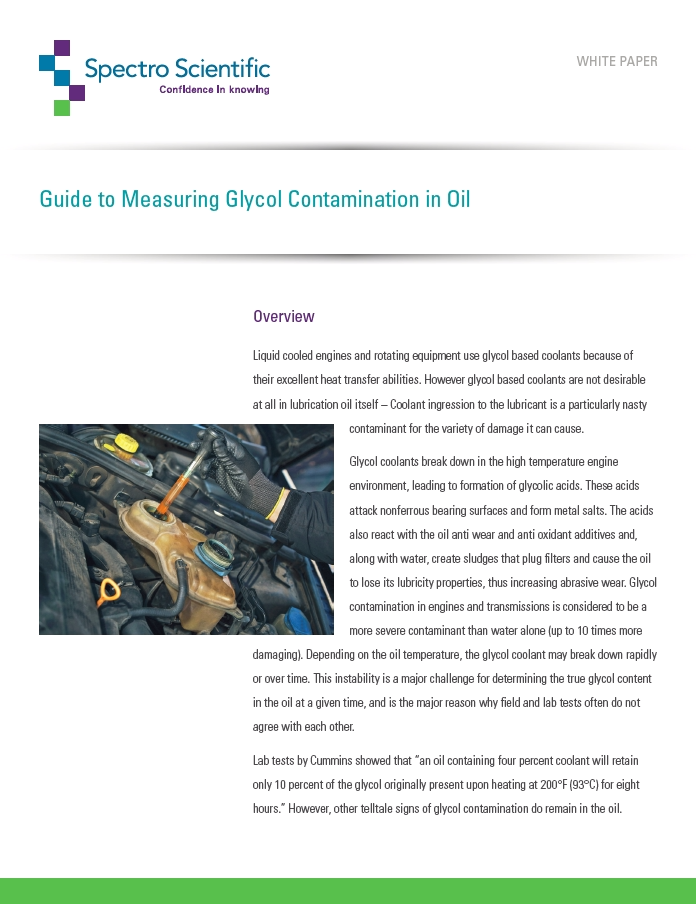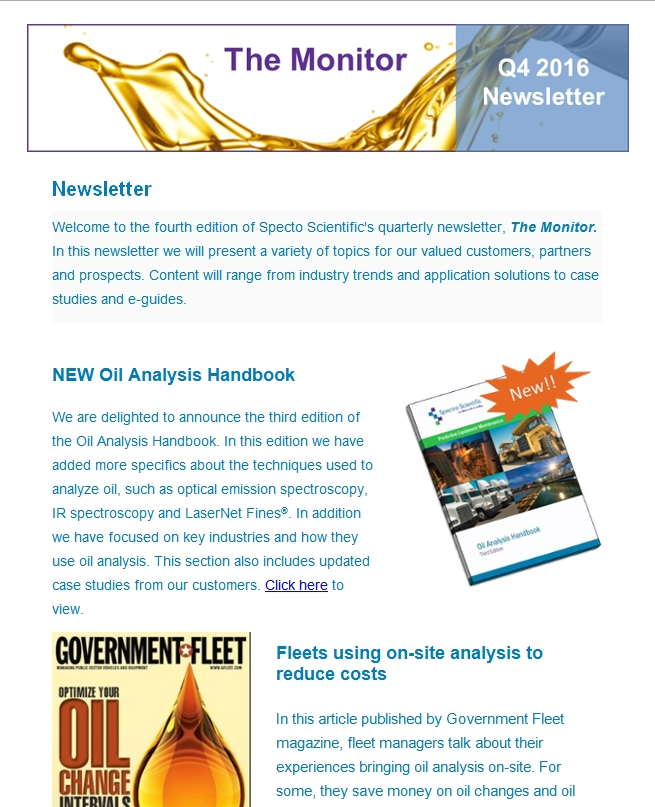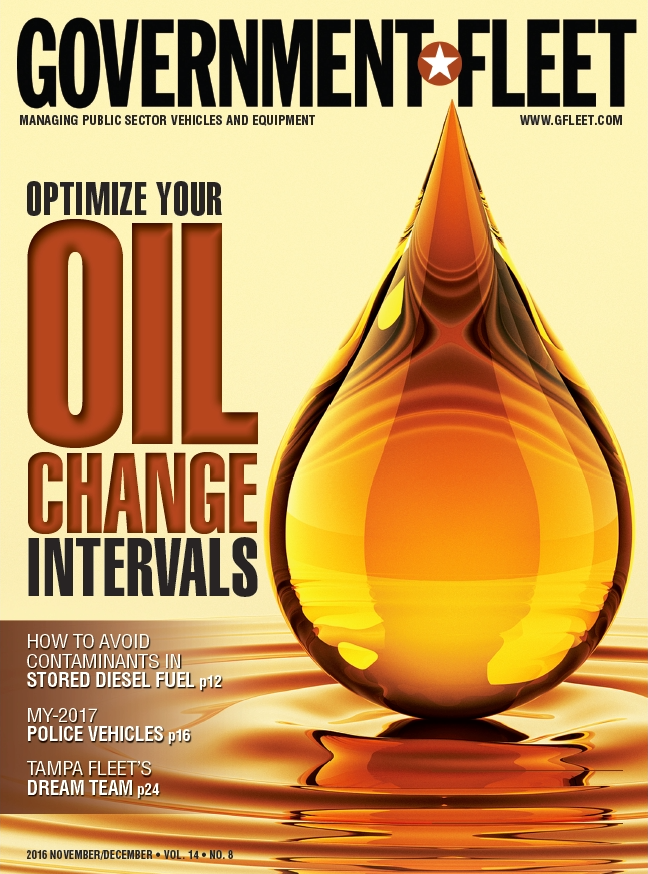The major issue for premature failure in wind turbine gearboxes is bearing failure, which leads to gearbox failure. A wind turbine gearbox will not survive if the oil is not clean and especially if the hard ferrous particles are not removed from around the bearings.
Automated Oil Particle Analysis Helps Prevent Gearbox Failures
There are 5 common tests for glycol in engine oil. These include:
- IR Spectroscopy
- Atomic Emission Spectroscopy
- Blotter Test
- Schiffer's Reagent Method
- Gas Chromatography
Liquid cooled engines and rotating equipment use glycol based coolants because of their excellent heat transfer abilities. However, glycol based coolants are not desirable at all in lubrication oil itself – Coolant ingression to the lubricant is a particularly nasty contaminant for the variety of damage it can cause. Glycol coolants break down in the high temperature engine environment, leading to formation of glycolic acids. These acids attack nonferrous bearing surfaces and form metal salts. The acids also react with the oil anti wear and anti oxidant additives and, along with water, create sludges that plug filters and cause the oil to lose its lubricity properties, thus increasing abrasive wear. Glycol contamination in engines and transmissions is considered to be a more severe contaminant than water alone (up to 10 times more damaging). Depending on the oil temperature, the glycol coolant may break down rapidly, or over time. This instability is a major challenge for determining the true glycol content in the oil at a given time, and is the major reason why field and lab tests often do not agree with each other.
Topics: Fleets
The Monitor
In this edition of The Monitor newsletter, we explore on-site oil analysis from several angles, including customer case studies, product highlights, and new educational materials.
See what’s new and exciting in the world of oil analysis.
On-site oil analysis pays off for fleet maintenance
Fleets use on-site oil analysis to reduce downtime and save money. This article highlights several different fleets including a municipal utilities fleet, a sheriff's fleet, a sanitation fleet and a city fleet, and how oil analysis benefits their maintenance activities. One of the biggest costs for the municipal utilities fleet was the labor cost associated with performing the oil changes. Safely extending oil change intervals saved them enough money to pay off the cost of the on-site oil analysis equipment in two years.
For the sheriff's fleet, the biggest cost was the cost of having law enforcement officers not out on the road doing their jobs. Bringing a vehicle in for an oil change often required paying officers overtime and took away from their more important activities. Extending oil change intervals saved on this cost.





